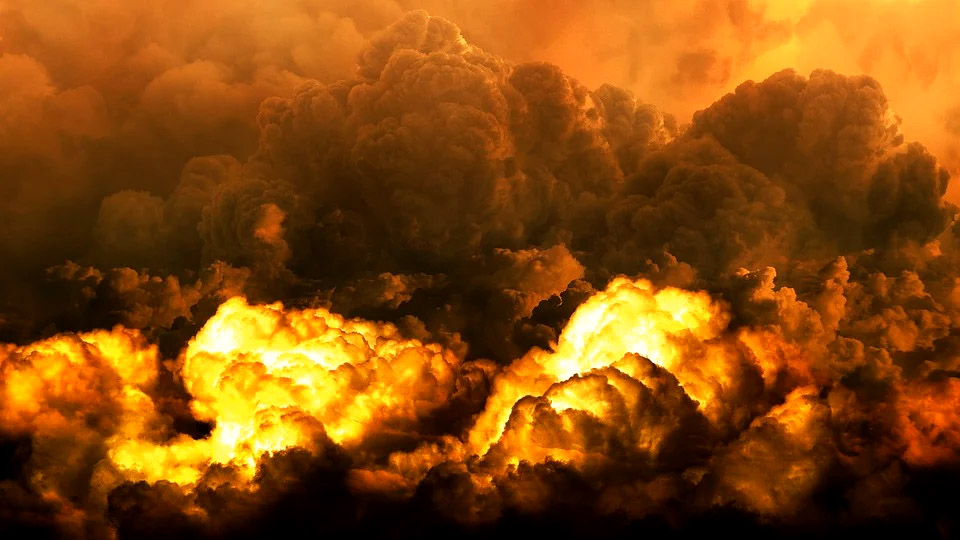
is that last year, the Pentagon’s weapons tester found nearly every single major weapons program had “significant vulnerabilities” to cyber attack.Ī total mindshift is required for this new reality. Similarly, we’d learn “cyber war” is far more than stealing Social Security Numbers or e-mail from gossipy Hollywood executives, but the takedown of the modern military nervous system and Stuxnet-style digital weapons. The lifeblood of military communications and control now runs through space, meaning we’d see humankind’s first battles for the heavens. But a 21st century fight would also see battles for control of two new domains. fought a peer in the air or at sea was in 1945. Unlike the Taliban or even Saddam’s Iraq, great powers can fight across all the domains the last time the U.S. has grow accustomed to and, in turn, others think reveal a new American weakness. It would be anything but.Ī great power conflict would be quite different from the small wars of today that the U.S. Making either scenario more of a risk is that military planners and political leaders on all sides assume their side would be the one to win in a “short” and “sharp” fight, to use common phrases. Or it could slow burn and erupt as a reordering of the global system in the late 2020s, the period at which China’s military build up is on pace to match the U.S. In the coming decades, a war might ignite accidentally, such as by two opposing warships trading paint near a reef not even marked on a nautical chart. Wars start through any number of pathways: One world war happened through deliberate action, the other was a crisis that spun out of control. Many Chinese officers have begun to lament out loud what they call “peace disease,” their term for never having served in combat. But it points to how the global context is changing. policymakers and a highly nationalist domestic audience: A 2014 poll by the Perth U.S.-Asia center found that 74% of Chinese think their military would win in a war with the U.S. This may be a bit of posturing both for U.S. “A U.S.-China war is inevitable” recently warned the Communist Party’s official People’s Daily newspaper after recent military face-offs over rights of passage and artificial islands built in disputed territory. The worry is that the brewing 21st century Cold War with China and its junior partner Russia could at some point turn hot. Indeed, it’s likely China’s alleged recent hack of federal records at the Office of Personnel Management was not about cyber crime, but a classic case of what is known as “preparing the battlefield,” gaining access to government databases and personal records just in case.

China built more warships and warplanes than any other nation during the last several years, while the Pentagon just announced a strategy to “offset” it with a new generation of high-tech weapons. and a newly powerful and assertive China are engaged in a massive arms race. Russian land grabs in Ukraine and constant flights of bombers decorated with red stars probing Europe’s borders have put NATO at its highest levels of alert since the mid 1980s. Yet that risk of the past has made a dark comeback. But at the start of the 21st century, the ever-present fear of World War III seemed to be in our historic rearview mirror. Mr Allison said: “I would argue that Russia could see this as a proxy war because of the sheer volume of funding, training and equipment the West is channelling to Ukraine.Great power conflicts defined the 20th century: Two world wars claimed tens of millions of lives, and the Cold War that followed shaped everything from geopolitics to sports. And we will not boast, we will use them if necessary. “We have all the tools for this, things no one else can boast of having now. “If someone intends to intervene in the ongoing events from the outside, and create strategic threats for Russia that are unacceptable to us, they should know that our retaliatory strikes will be lightning-fast,” he said. Mr Putin has threatened to retaliate against the alliance if he deems it to intervene in his campaign against Ukraine. The decision of Western countries to help arm Ukraine against the invasion has led Moscow to accuse Nato of waging a “proxy war” against it. Russia presents an existential threat to its neighbours, not the other way around.” How does Russia perceive Nato?


“Russia’s unprovoked invasion of a European country has pushed Finland and Sweden towards joining Nato. Putin’s actions have only resulted in the strengthening of Nato. The Russian invasion of Ukraine, in my view, has not had the effect Putin wanted.


 0 kommentar(er)
0 kommentar(er)
